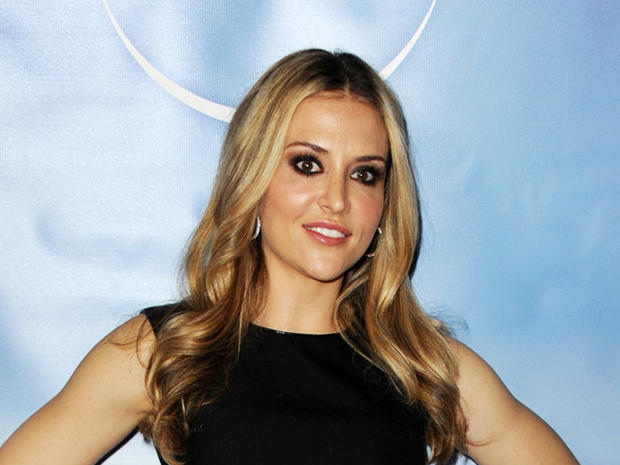Brooke Mueller heads to Mexico for "extreme" rehab: What's that?
(CBS) Brooke Mueller, Charlie Sheen's ex and mother of two of his kids, is heading to rehab. But Brooke isn't going to some run-of-the-mill inpatient treatment program. A gossip website reports she's trying a seven-day "extreme rehab" program in Mexico where she'll be given doses of ibogaine, a hallucinogenic compound that's found in African shrubs but is illegal in the U.S.
TMZ reports that the 33-year-old is confident that ibogaine will "rewire" her brain so she can finally break free from her addictions.
This isn't the first time Mueller's sought help for substance abuse. She recently completed a 45-day outpatient treatment program where she attended regular AA meetings, according to the Daily Mail. But since then she's been photographed holding a drug pipe, and recently had an altercation with a flight attendant where she was removed from a plane. So now the actress plans to enter the week-long ibogaine program.
What's ibogaine? It's a hallucinogenic chemical that occurs naturally in the African Tabernanthe iboga shrub's root bark, and is commonly taken there for religious rite ceremonies. But research suggests the drug also reduces potentially deadly withdrawal symptoms from opiates like heroin, and it even changes drug-seeking behavior in some patients who take it. How does ibogaine work?
"We don't really know how what the mechanism of action is," Dr. Kenneth Alper, an associate professor of psychiatry and neurology at NYU's Lagone Medical Center, told CBS News. He said there's strong evidence from human and animal studies that ibogaine helps people dependent on opiates through the extremely uncomfortable withdrawal process.
But this treatment approach is not for the first-time addict. "A lot of these people fail other treatments - people don't generally start with ibogaine," he told CBS News.
But will it kick addiction habits forever, as Mueller reportedly hopes it will? Alper said that ibogaine alone, or any pharmaceutical drug approach for that matter, won't stop addiction.
He said addicts need to disengage themselves from their" social network of drug use," to truly beat addiction. "I've seen everything from relapses within days of the treatment to years following ibogaine," he said. "One difference in people that became abstinent is they embraced other things like 12-step programs."
Other experts, like Dr. Drew Pinsky, host of "Celebrity Rehab" and an assistant clinical professor of psychiatry at USC's Keck School of Medicine, think the drug may be worth avoiding entirely due to the hallucinogen's side effects.
"In my experience people, after ibogaine, stop opiates for three to six months and then they begin again," he told RadarOnline.com. "I have had this experience with dozens of patients, but most disturbingly these patients had persistent mood and personality changes."

